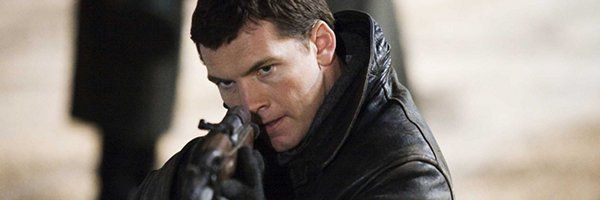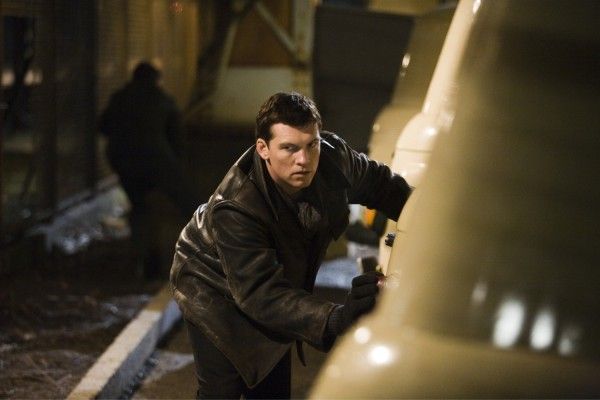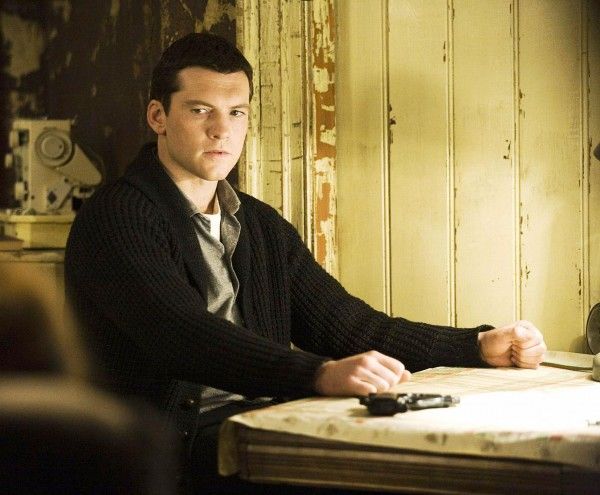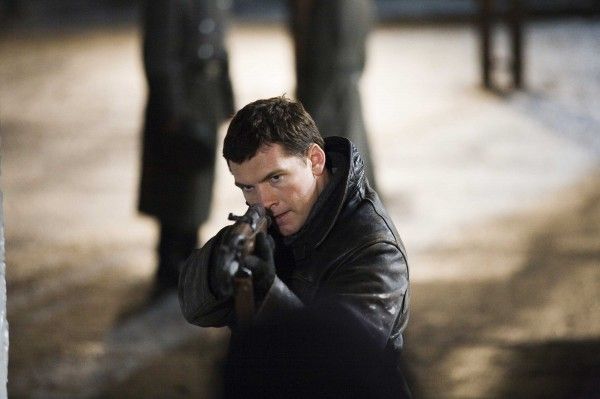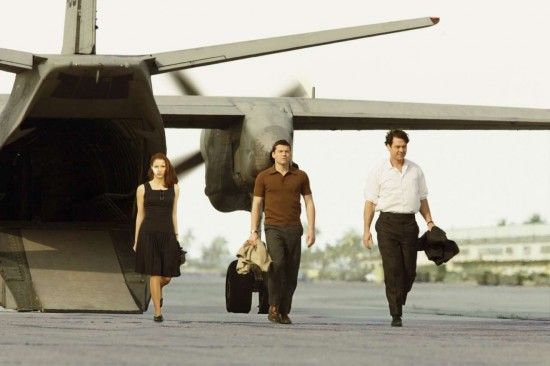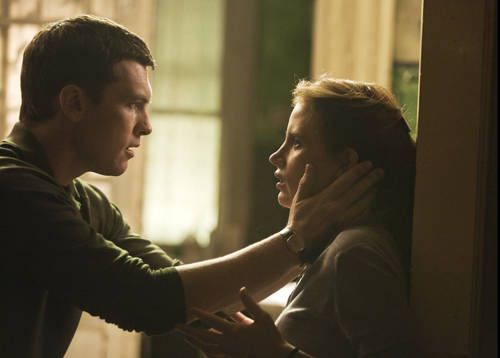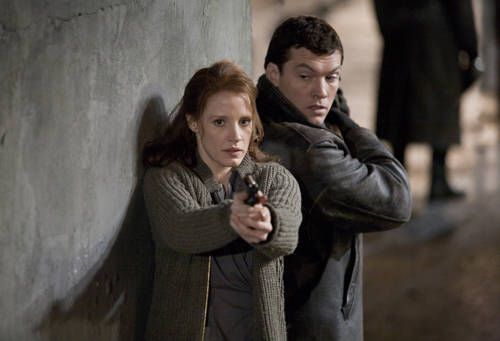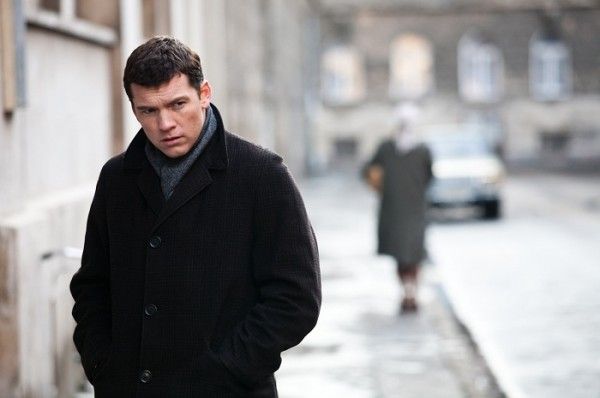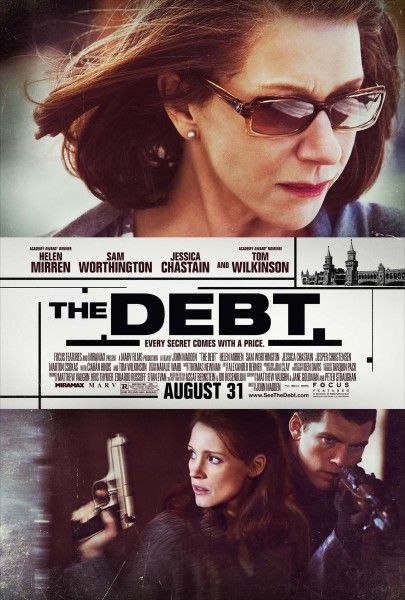In the dramatic thriller The Debt, based on the Israeli film Ha-Hov, actor Sam Worthington plays David, a Mossad secret agent in the 1960's who set out on a mission, with fellow agents Stephan (Marton Csokas) and Rachel (Jessica Chastain), to track down a Nazi war criminal. But, not everything goes as planned and, 30 years later, they all must face the truth.
At the film’s press day, Sam Worthington talked about how the director’s take on the material is what drew him to the project, how he enjoyed the Krav Maga training for the role, and how he balanced his performance with his co-stars. He also talked about how he’s not surprised that there’s a sequel for Clash of the Titans since it made a lot of money, how this one is a very different film, how he’s playing a surf photographer in Drift, and that he’d love to do multiple sequels for Avatar to keep working with Jim Cameron. Check out what he had to say after the jump:
Question: What drew you to the role of David?
SAM WORTHINGTON: I was in Albuquerque filming Terminator and (director) John Madden flew to there. I was wondering why this bloke wanted to fly to fucking Albuquerque, and I figured it was to sign me on, since there’s not much there, besides green chilies and weaving, so we hung out. He’s a very sensitive man. He’s very eloquent. And, after hearing his take on the script and what he wanted me to do with the part, I really liked it and I felt safe. That’s why I chose to work with him. I always choose my projects based on the director.
Did you watch the original Israeli film?
WORTHINGTON: I’d seen the original, way before the movie had come up, but I didn’t go back to invest in it or use it. There are a lot of differences. The characters are a bit more stereotyped and there were these little holes that needed to be filled in. So, I didn’t go back to it, but I had seen it.
How did Krav Maga training compare to other kinds of training that you’ve done in the past?
WORTHINGTON: I get my ass kicked in the Krav Maga sequence. I quite enjoyed that a lot. Krav Maga is an aggressive form of defense. It’s all about attack. If someone is coming at you with a knife, you might get four stabs, but that’s the price you pay for taking your opponent down. No matter what the sacrifice, you keep going forward. I think that really helped with the character. David wants to get that mission done, no matter the cost to his own sanity, his own demons, or anything.
What was it like to film those safe house scenes?
WORTHINGTON: John designed it in a way that was in order, so you were in the house playing happy family, and then in the course of four weeks, you would start to unravel. We ended up like rats in a cage, and want to get the hell out of there, which parallels the story of the characters. I liked it. Me, Marton [Csokas], Jess [Chastain] and John [Madden] all have a background in theatre. It felt like you were on the stage, every day, being in your own confined, little place. I wanted to get the hell out of there, every day. The last day, I couldn’t wait to get out of there.
Does that affect your performance?
WORTHINGTON: Of course, it does. It has to. I didn’t want to be around a dude, pissing and spewing on himself. I wanted out! I wanted him out!
All of these characters wrestle with the fine line between justice and vengeance. How did you feel about where your character was coming from?
WORTHINGTON: David is an idealist, to start with. He has to be, in order for him to end up where he does. Because of what happened in his past, he’s got a lot of baggage and things he has to lay to rest, and this mission will lay them to rest. When the mission starts unraveling, that’s when things start coming out. I tried to keep this man contained and strong, but you can see that he’s leaking. It’s the demons that are leaking, and the fact that he’s let down his dead family. That was the journey that I took him on.
Is it more your thing, to be with actors rather than working with so many special effects?
WORTHINGTON: It doesn’t bother me, either way. Each job you have has it’s own challenges. I don’t mind, at all. One of the great things about my job, is that each film is a different journey. Whether you’re stuck in a house doing it in order, or out on location doing it out of order, or on a green screen stage, each one poses its own problems, but each one is just problem solving and trying to find the truth, in imaginary circumstances. That’s the job.
What sort of character work do you do, before you get to set?
WORTHINGTON: I read a lot about the character. It depends on the job. With some characters, you’ve got to find the key in. The Debt was about how I was going to balance with Jessica [Chastain] and Marton [Csokas]. It was like, “How is Marton going to play the part?” I couldn’t play it the same way because then there would be no balance in the trio. So, Marton told me that he wanted to be the out-there one. John said, “Yeah, let him be the extrovert, so you can be the introvert. You do stoic better than anyone, so now get commended for it, for once. Don’t just stand there looking pretty.” That was good for me, especially because it gave Marton the chance to be bigger. I knew Marton from Australia, so I knew he could handle it.
The story opens with the three of you meeting for the first time. How much rehearsal time did you have beforehand?
WORTHINGTON: We hung out a bit and talked. The three of us are smart enough to where we know that you don’t have to be so method. It’s not like I didn’t want to talk to Marton, or Jess. There are different types of method. It’s more about mapping it out with your fellow actors, and talking about where you think you’re going, or what your ideas are. It’s like a runaway train, and you just get on the train and see where it takes you. When you’re working with the caliber of actors like Jessica, Marton and Jesper, that’s the fun of it.
Is it different working with actors that have trained on stage?
WORTHINGTON: I think so, especially in this process because it was in order. It’s a deeper way of thinking. That’s why, when Texas Killing Fields came along, I said, “Get her.” Plus, we’d already had a relationship in The Debt and, in Texas Killing Fields, we’re a couple that has gone through a break up. We’d already had the courting, so I thought it would be easier for us.
Did you and Ciaran Hinds work together at all, or meet to go over the character?
WORTHINGTON: Me and Ciaran had about a half of a conversation. That’s the way we work. I said to him, “Here is how I am looking at him – he’s a powder keg of a man. I’m trying to hold him in. He’s an idealist that is unraveling. This is the moment where it flips. This is the moment where it hurts him. This is the moment where there’s a challenge. See you later.” Ciaran ended up creating his own character because there is a 30-year span. It’s not necessarily the next day. It’s a man with 30 years worth of waiting and guilt on his shoulders. The great thing is that he picked up on little head movements that I made, which I thought was interesting when I watched it because I have distinctive head movements. And, there is a distance in his character later on, which to be honest, is how I envisioned David to be. He’s a very distant soul, who had been searching the world, trying to make things right, but knowing full well that he’s holding water in his hands.
How did you and Jessica work out the little details for your characters’ fake relationship?
WORTHINGTON: The hand thing wasn’t in the script. That’s just something you come up with, and you figure out a way that you can physically tell the story. For me, it was to do the hands. I just said, “Why don’t we let the hands go, when we’re out of sight?” And then, John [Madden] worked that into the script, which was nice. I love those little details. That, to me, is the interesting thing – the bits so subtle that you may miss them.
How much improvisation was there?
WORTHINGTON: Not much. Compared to most scripts, what you see in the film is pretty word perfect to the script, which is pretty unusual. I can’t talk for Helen, obviously, but for us, it just read right. You just know, if it sits with you and doesn’t sound bogus or bullshit. This was one of the only films where maybe we changed one line. That was the strength of the script.
Of all the big films you’ve been a part of, are you surprised that Clash of the Titans is getting a sequel first?
WORTHINGTON: Not necessarily because it made a shitload of money. Titans made a lot of money, and a lot of people went and saw it. We’ve just got to make it right. I just finished that. I loved it. I loved that experience. Clash 2 is so different. It was a different experience for me because I had learned a lot on Clash 1, and I learned a lot from other movies. I can’t wait for it to come out. I’m not surprised at all.
And it has a different director, right?
WORTHINGTON: Yeah, a different director. I would work with Jonathan Liebesman for the rest of my life. I love him.
What other classic monsters are there to slay?
WORTHINGTON: You’ll have to wait and see!
It was a different experience for you, but is it also a different film from the first one?
WORTHINGTON: You’ll have to wait and see!
What do you hear from Jim Cameron about Avatar 2 and 3?
WORTHINGTON: Jim talked to me on my birthday. In regards to Avatar, he’s writing the bible at the moment, which is a precursor to Avatar 1 and the whole world, basically. I think it’s just to get Jim’s mind back into the characters and back into the world. He’s told me where he wants to take Avatar 2 and 3, and it’s monumental. It’s just huge! But, you’d expect nothing less from him. He’s not going to start it until he’s 100%. I know they’re setting up shop down in Manhattan Beach, and when he says jump, I jump.
Is the idea of doing the second and third film back-to-back exciting for you?
WORTHINGTON: I love it! I’d do 2, 3, 4, 5, 6, 7, 8, 9 and 10 with Jim. I love working with him. He raises the bar and gives you the courage to jump over it, and he keeps pushing. He changes your life. He hasn’t just changed my life, career wise. He’s changed my life, as a man, which is nice.
In what way?
WORTHINGTON: He makes you stronger, in the sense of being more focused and committed. He’s told me that, if I’m doing this job, I’ve got to challenge myself more, and not listen to anybody else, and not listen to any media or bloggers, but just listen to myself. I’ve got to push myself, or there’s no point in me doing this. If I don’t believe I’m growing, and I believe I’m just coasting, then I’ve got to get off the train. If I feel I’m growing, I have to keep going. It’s a long marathon.
Could you ever see yourself directing?
WORTHINGTON: Yeah, I would love to.
How have you handled the transition from working actor to being recognized, in any corner of the planet?
WORTHINGTON: You try to handle it with some sense of sensitivity. It doesn’t really bother me, if people want autographs and stuff like that because, fuck it, they’re the ones seeing you’re movies. It’s actually quite nice and humbling. You just do it. It’s not that hard to write your name. I can’t see why you would get grumpy about it. It doesn’t really bother me. It’s very nice. I go under the radar quite well, though, especially when I look like Zach Galifianakis. (He’s currently sporting shaggy hair and a beard for a surf movie.)
He gets recognized a lot.
WORTHINGTON: I’m fucked then!
What if people ask you for Zach’s autograph?
WORTHINGTON: I actually got a photo with him. I saw him in a bar and I asked him for a photo, and he was like, “Who the fuck are you?”
How is Drift going?
WORTHINGTON: I play a surf photographer. I don’t actually get on a board. I said, “You’re not paying me enough to show the world what I can do,” and they laughed and thought I was an idiot. That’s going to be a lot of fun. Where we’re going, the waves are huge. They’re big. They’re the second or third biggest on the planet. We’ve got an actor in it who has only been surfing for eight weeks, and they towed him into a wave as big as a room. That poor fucker is scared shitless. I’m looking forward to it and he’s going, “Help! Why am I doing this movie? Why did you convince me to do it, Sam?”
What were the challenges of working on Texas Killing Fields?
WORTHINGTON: Well, that’s a true story, or rather it’s a fictionalized version of true events, so you want to not demean it, by making it. It’s got a lot of weight. The movie had an affect on me because I never knew this road existed. I never knew that all these women had been slaughtered and dumped there, and it’s still a dumping ground for women and murders. When you see a table filled with photos missing people, and you know that half of those people are still in the fields, it’s quite touching. You want to do a movie that sheds light on this situation, so that someone like myself, or someone else, can go look it up and say, “I actually remember that girl,” and then maybe they can go find her in that field, or it may spark someone’s memory about things and those murders can get solved and those families can find some peace. It’s a full-on thing that happened in Texas, and it’s still happening, and no one knows about it. That was the responsibility that I felt I had in that movie.
What did you take away from doing The Debt?
WORTHINGTON: Apart from a great relationship with Jess? It’s a movie that is not necessarily about the Holocaust and Nazi hunters, but it’s about actually harboring a secret for so long, that you know is wrong, and the ripple effect it has, not only on you, but everyone close to you, in the long term. It made me question everything. I used to hold a lot in, especially with loved ones. Now, I’m pretty damn honest, whether it hurts them or not. I would rather it hurt them straight-up than 30 years down the track because then it can actually kill them, which it does in this movie. So, it makes you more honest.
You really do take movies into your real life, don’t you?
WORTHINGTON: Yeah, I think it permeates into your system. In Clash 2, I’m playing a dad, so I’m obviously dealing with some fucking issues there, to suggest I could be a father. But, whether it’s Perseus or David, the character is in your fiber. You’re bringing stuff out of your own personality to infuse into a character. Sometimes it doesn’t work and you end up with a two-dimensional, wooden character, which I’ve been accused of. That’s fine. It makes me go, “I’ll work harder to get the personality out.” That’s fair enough. That, I like. I hate it because it’s hard to scrub off the character sometimes, but I like that sense of self-exploration.
Do you find that people in your life are supportive of that?
WORTHINGTON: My friends think I’m fucking nuts, and relationships are hard, but that’s my job. That’s the part of my job that I love.
What part of Sam do we see in David?
WORTHINGTON: I’ve got no idea. I wanted him to be a sensitive Molotov. It’s a bit difficult because no one in my family has been slaughtered, but there is a sensitivity to the way he looks at the job. If anything, the fact that he wants to achieve that mission is like me. I want a movie to be satisfying for an audience. That sense of having to get it done, no matter what cost, is what I like. Like what Jim [Cameron] said, “A movie is a war. You’re gonna have causalities within yourself and you’re gonna have causalities when you make it, but essentially you want to come out the other side victorious and have everyone go, “Man, that was an experience.”

